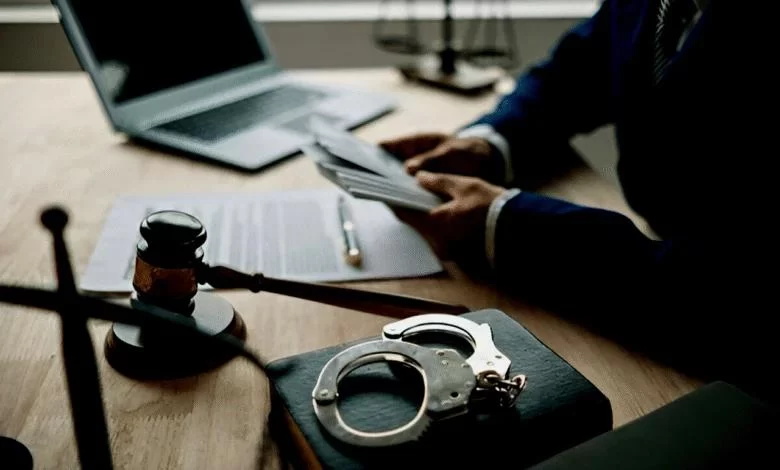- Understanding-White-Collar-Crime
- Strategies-Used-By-Criminal-Defense-Lawyers
- Importance-Of-Expert-Legal-Representation
- Case-Study-Insights-Into-White-Collar-Defense
- How-To-Choose-The-Right-Defense-Lawyer
1. Understanding White-Collar Crime: The Complexity Behind Corporate Offenses
White-collar crime is a broad category of non-violent offenses typically committed in commercial settings, involving deceit, fraud, embezzlement, insider trading, and other financial misconduct. Unlike street crimes, these offenses are complex, often involving multiple layers of documentation, corporate structures, and legal loopholes. This complexity demands a specialized approach from criminal defense lawyers who handle such cases.
Many people underestimate the seriousness of white-collar crimes because there is no physical violence involved. However, the financial and reputational damage caused can be immense, affecting not only corporations but also employees, investors, and the broader economy. Hence, criminal defense lawyers must first understand the intricate financial and legal frameworks involved before mounting an effective defense.
1.1 The Nature of White-Collar Crime Investigations
Investigations into white-collar crimes can last months or even years, involving forensic accountants, regulatory agencies like the SEC, and multiple layers of corporate documentation. Defense lawyers work closely with financial experts to dissect evidence and identify weaknesses or inconsistencies that can aid the client’s case.
1.2 Common Challenges in White-Collar Crime Defense
One major challenge is the vast amount of evidence typically gathered against defendants, ranging from emails to complex financial records. Criminal defense lawyers must navigate these voluminous data sets, often needing technical expertise to counter allegations effectively.
2. Strategies Used by Criminal Defense Lawyers in White-Collar Crime Cases
Approaching white-collar crime defense requires a multi-layered strategy that integrates legal, financial, and sometimes psychological tactics. Lawyers must craft a defense plan tailored to the unique facts of each case.
2.1 Early Case Assessment and Evidence Review
Experienced criminal defense lawyers begin by thoroughly reviewing all evidence and identifying procedural mistakes made by investigators. This early stage often reveals grounds for challenging the legality of searches, seizure of documents, or the admissibility of evidence.
2.2 Building a Narrative Beyond the Numbers
White-collar cases often become entangled in technical jargon and complicated transactions. Defense lawyers work to translate this complexity into a coherent narrative that portrays their client’s actions in the best possible light. This might involve demonstrating a lack of intent to commit fraud or showing compliance with regulatory standards.
2.3 Negotiation and Alternative Resolutions
Not all white-collar crime cases end in trial. Skilled defense lawyers may negotiate plea agreements or settlements that minimize penalties and protect client interests. These negotiations require a deep understanding of both the law and the prosecutorial mindset.
3. The Importance of Expert Legal Representation in White-Collar Crime Defense
Given the complexity and stakes involved in white-collar crimes, having expert legal representation is crucial. Criminal defense lawyers specializing in this area bring critical experience and connections to financial experts, investigators, and prosecutors.
3.1 Protecting Your Rights Throughout the Process
Clients often face intense scrutiny and pressure during investigations. Defense lawyers ensure their clients’ rights are protected from the outset, preventing coerced statements and improper evidence collection.
3.2 Enhancing Credibility Through Professional Insight
Expert lawyers bring credibility that can influence the course of legal proceedings. Their familiarity with white-collar crime trends and legal nuances often results in more favorable outcomes.
4. Case Study Insights Into White-Collar Defense
Consider a recent high-profile case where a corporate executive was accused of insider trading. The defense lawyer’s approach involved dissecting email communications and market data to prove the trades were based on public information, not confidential tips. By carefully challenging the prosecution’s timeline and intent assumptions, the lawyer was able to negotiate a reduced sentence and protect the client’s professional reputation.
This example highlights how tailored strategies and deep expertise in white-collar crime defense can make a significant difference.
5. How to Choose the Right Criminal Defense Lawyer for White-Collar Crime Cases
Choosing the right defense lawyer is arguably the most critical step for anyone facing white-collar crime charges. Look for attorneys with proven track records in corporate crime defense and access to forensic accountants and other experts.
Fred Miller Lawyer offers specialized legal services tailored to white-collar crime cases. Their professional team understands the subtleties of defending against complex financial allegations and can provide personalized guidance to navigate the legal landscape.
5.1 Questions to Ask Potential Lawyers
When consulting with defense attorneys, consider asking about their experience with similar cases, success rates, approach to evidence review, and negotiation tactics. A transparent and communicative lawyer will build the trust necessary for a strong defense.
5.2 The Value of Early Legal Intervention
Engaging a skilled defense lawyer early on can prevent mistakes that jeopardize your case and help formulate a proactive defense strategy that adapts to evolving legal challenges.


 walstead mertsching
walstead mertsching gorodetsky group
gorodetsky group compass immigration legal services
compass immigration legal services denver trademark lawyer
denver trademark lawyer peter blair san diego
peter blair san diego gk lawyers
gk lawyers